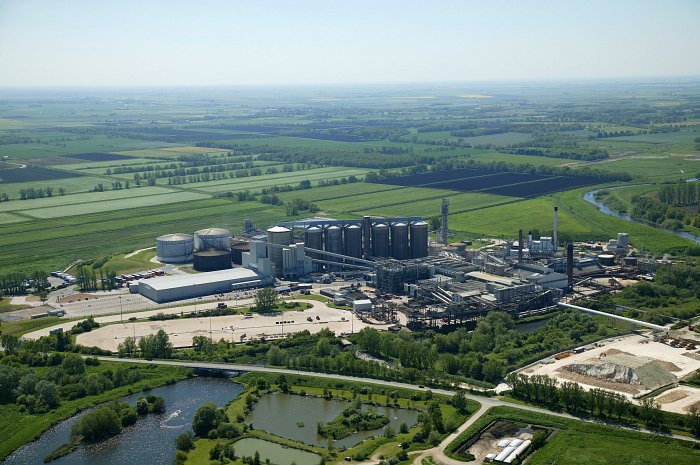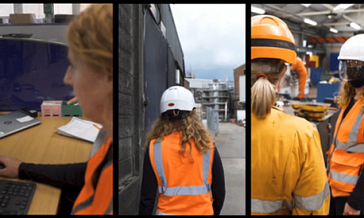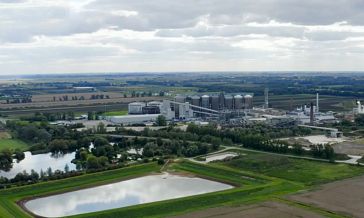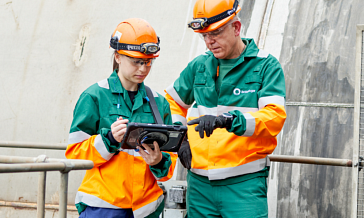
Latest news
All recent news from British Sugar
British Sugar announces biggest decarbonisation project ever at Wissington factory during its centenary year
30 May 2025

A substantial 50,000 tonnes of Scope 1 carbon emissions are set to be removed from Wissington’s site footprint thanks to a record-breaking investment of £43m into a new steam drying project.
In addition to British Sugar’s own investment, the project has received a grant of £7.5m from the Government’s Industrial Energy Transformation Fund (IETF). This significant capital has been fundamental in the project’s development. Construction on site has started in order to be ready for commissioning in Autumn 2026.
Wissington, the largest of British Sugar’s four factories, located in Norfolk, is celebrating 100 years of sugar manufacturing this year having first opened in 1925. Today, it processes over three million tonnes of sugar beet every year into approximately 400,000 tonnes of sugar and many co-products that are derived from the sugar production process. This process, by nature, requires large amounts of energy in the form of heat and electricity, and although the amount of steam needed to process the sugar beet has more than halved over recent years, the site remains a high user of energy.
As a result, and further to a £17m investment in a new evaporator, heat exchangers and processing equipment commissioned at Wissington in Autumn 2023, this project sees the installation of two brand-new steam dryers to dry its sugar beet pulp, turning it into an animal feed product. The dryers will have greater integration into the rest of the sugar manufacturing process by taking steam directly from the combined heat and power (CHP) plant on site. Together, these two projects represent a reduction of 80,000 tonnes of Scope 1 emissions, that’s a significant 25% reduction across the site.
Phil McNaughton, Head of Decarbonisation at British Sugar comments: “This project would not be possible without significant investment from the Government through the IETF. It marks another step-change in our decarbonisation journey at British Sugar’s Wissington factory.
“Removing 50,000 tonnes of Scope 1 carbon emissions per annum from our site is a significant milestone for us, and it is the single biggest decarbonisation project that we have undertaken as a business.
“This project brings us significantly closer to our ambition of being net zero by 2050. We look forward to working together with the Government in the future to utilise new technologies and continue decarbonising our operations.”
Terry Jermy, Member of Parliament for South West Norfolk comments: “This investment in innovative decarbonisation technologies is essential to meeting our climate targets while ensuring economic prosperity and job creation in regions like Norfolk. I am fully supportive of British Sugar’s drive to decarbonise its operations, particularly at Wissington in my constituency and it was a pleasure to meet some of the project team, including some passionate apprentices, during my visit earlier this year.”
Notes to editors:
British Sugar’s four manufacturing sites across the East of England and East Midlands, are on an established decarbonisation journey which has reduced Scope 1 and 2 emissions by 21% since 2017/18.
DESNZ Industrial Energy Transformation Fund (IETF) funding announcement – click here.
Wissington’s steam drying project details:
- The new dryers will be housed in a 25m x 15m building, around 20m tall and will be built in the heart of the site’s sugar manufacturing area.
- At present, the site has three gas dryers that take the beet pulp, once the sugar has been extracted, and dry it, turning it into an animal feed product which is then sold into the agricultural industry. The record-breaking investment sees the installation of two new steam dryers which will have greater integration into the rest of the sugar manufacturing process by taking steam directly from the combined heat and power (CHP) plant on site and using it to dry the pulp.
- Undertaking this type of technology change in the dryers will future-proof the site to allow conversion to a lower-carbon fuel input or a high-temperature heat pump, as and when future technologies become available at scale.
- The project will bring about natural gas savings of around 193,000 MWh/year at Wissington alone. As with many other carbon reduction initiatives, the application of technology could be mirrored at other British Sugar sites, to enable further Scope 1 emissions to be taken out of the process, should investment allow.





